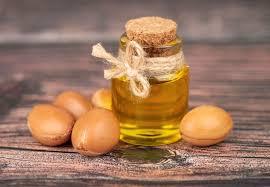Inquire
Argan Oil Market Sustainability Practices and Ethical Sourcing Driving Consumer Trust

The Argan Oil Market is witnessing steady growth due to rising demand for natural, organic, and sustainably sourced personal care products. Extracted from the kernels of the Argan tree native to Morocco, Argan oil is rich in vitamin E, essential fatty acids, and antioxidants. Its applications span cosmetics, haircare, food, and pharmaceutical industries due to its hydrating, restorative, and therapeutic properties. Sustainability practices and ethical sourcing are shaping consumer trust, brand reputation, and long-term market growth.
Market Overview and Growth Drivers
The Argan Oil Market has shown consistent growth driven by increasing consumer preference for chemical-free and eco-friendly products. Popularity of vegan, cruelty-free, and ethically produced cosmetics enhances market adoption. Social media campaigns, influencer marketing, and wellness education raise awareness of Argan oil benefits, increasing consumer interest. E-commerce platforms and retail expansion provide convenient access to premium products. Rising disposable incomes, urbanization, and health-conscious lifestyles continue to support market growth. Sustainable sourcing and responsible production methods reinforce brand credibility and customer loyalty.
Applications Across Industries
Argan oil is widely applied in cosmetics, haircare, food, and pharmaceutical sectors. In skincare, it is incorporated into creams, serums, facial oils, moisturizers, and anti-aging products due to its hydrating and restorative properties. Haircare products leverage Argan oil to enhance shine, texture, and frizz control. In the food sector, it is consumed as a healthy edible oil and dietary supplement, rich in antioxidants and unsaturated fatty acids promoting overall wellness. Pharmaceutical applications utilize its anti-inflammatory and healing properties in therapeutic creams and ointments. Ethical sourcing and sustainability practices ensure product authenticity across applications.
Regional Market Insights
Morocco is the primary producer of Argan oil, benefiting from traditional extraction methods and favorable climatic conditions. Europe and North America are major consumer markets due to high demand for premium and natural cosmetic products. Asia-Pacific is witnessing rapid growth, driven by rising disposable incomes, wellness awareness, and expanding retail and e-commerce networks. Emerging markets in Latin America and the Middle East are gradually adopting Argan oil products, offering additional growth opportunities. Regional initiatives supporting sustainability and fair trade influence production practices and consumer perception.
Sustainability Practices and Ethical Sourcing
Sustainability in the Argan Oil Market involves environmentally friendly harvesting, production, and distribution processes. Ethical sourcing ensures fair wages, community development, and cooperative support for Moroccan producers. Cold-press extraction and solvent-free processing minimize environmental impact while preserving product quality. Eco-friendly packaging, reduced carbon emissions, and renewable energy adoption further contribute to sustainable practices. Companies prioritizing transparency, traceability, and responsible sourcing strengthen consumer trust, improve brand reputation, and foster long-term loyalty.
Market Trends
Key trends in the Argan Oil Market include rising demand for organic, cold-pressed, and ethically sourced products. Consumers increasingly prefer brands that demonstrate environmental responsibility and social impact. Private-label and artisanal brands offer premium alternatives, enhancing product diversity. Integration of digital marketing, e-commerce, and social media campaigns educates consumers about sustainable practices and sourcing transparency. Companies emphasizing sustainability and ethical production gain competitive advantages and align with evolving consumer expectations.
Challenges and Restraints
Despite growth, the Argan Oil Market faces challenges. Limited supply due to slow-growing Argan trees and labor-intensive extraction may restrict production capacity. Seasonal variations affect raw material availability. Adulteration and counterfeit products threaten brand credibility and consumer trust. Balancing cost-effectiveness with sustainable and ethical practices can be challenging for small-scale producers. Addressing these challenges requires investment in cooperative networks, sustainable production methods, and quality assurance to ensure reliable, authentic products.
Future Outlook and Opportunities
The Argan Oil Market is expected to continue expanding, driven by global consumer awareness of sustainability and ethical sourcing. Opportunities exist in premium skincare, haircare, and dietary supplement products emphasizing responsible production. Technological advancements in sustainable extraction, eco-friendly packaging, and traceability systems improve operational efficiency and brand reputation. Companies prioritizing sustainability, ethical sourcing, and social impact are likely to gain long-term competitive advantages and strengthen market presence in the evolving Argan Oil Market.
In conclusion, the Argan Oil Market demonstrates significant growth potential fueled by sustainability practices, ethical sourcing, and consumer trust. Manufacturers focusing on responsible production and transparency are positioned for long-term success.
- Managerial Effectiveness!
- Future and Predictions
- Motivatinal / Inspiring
- Other
- Entrepreneurship
- Mentoring & Guidance
- Marketing
- Networking
- HR & Recruiting
- Literature
- Shopping
- Career Management & Advancement


 SkillClick
SkillClick